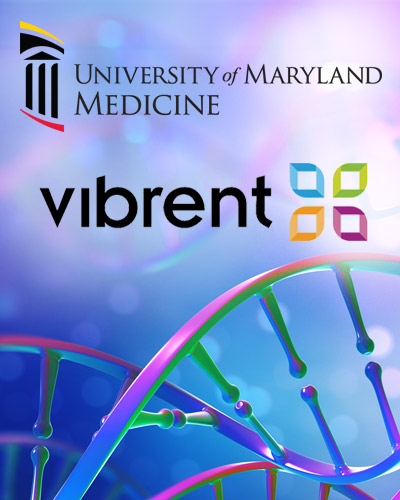May 31, 2017

The College of American Pathologists (CAP) has awarded accreditation to the University of Maryland School of Medicine’s (UMSOM) Translational Genomics Laboratory (TGL) based on results of a recent on-site inspection as part of the CAP’s Accreditation Programs.
The facility’s laboratory director, Linda Jeng, MD, PhD was advised of this national recognition and congratulated for the excellence of the services being provided. In addition to the TGL director, the quality assurance manager, Danielle Sewell, played an integral role in the accreditation process and successful inspection and the technical supervisor, Nicholas Ambulos, PhD, is instrumental in developing the TGL.
The TGL is one of more than 7,600 CAP-accredited facilities worldwide. The U.S. federal government recognizes the CAP Laboratory Accreditation Program, begun in the early 1960s, as being equal-to or more-stringent-than the government’s own inspection program.
During the CAP accreditation process, designed to ensure the highest standard of care for all laboratory patients, inspectors examine the laboratory’s records and quality control of procedures for the preceding two years. CAP inspectors also examine laboratory staff qualifications, equipment, facilities, safety program and record, and overall management.
The TGL is part of the School of Medicine's Program for Personalized and Genomic Medicine (PPGM) and the Center for Innovative Biomedical Resources (CIBR). Alan Shuldiner, MD, the John A. Whitehurst Professor of Medicine and director of the PPGM, established the PPGM to advance discovery in genomics and other “omics” sciences, accelerate translational research, and implement these discoveries into more effective and safe individualized health care.
Nicholas Ambulos, PhD, director of CIBR, established CIBR to provide specialized expertise, cutting-edge technologies and sophisticated scientific resources supporting a robust basic, clinical and translational biomedical research environment at UMBSOM.
The TGL was developed as a critical bridge to help accelerate translation from discovery into precision health care, providing DNA sequencing, genotyping and array-based technologies. These resources place UMSOM in the extraordinary position of providing its faculty with the comprehensive tools to support genomic studies from discover through implementation into clinical care.
About the College of American Pathologists
The College of American Pathologists (CAP), celebrating 50 years as the gold standard in laboratory accreditation, is a medical society that serves more than 18,000 physician members and the global laboratory community. It is the world’s largest association composed exclusively of board-certified pathologists and is the worldwide leader in laboratory quality assurance.
The College advocates accountable, high-quality, and cost-effective patient care. More information about the CAP can be found at www.cap.org.
Contact
Office of Public Affairs
655 West Baltimore Street
Bressler Research Building 14-002
Baltimore, Maryland 21201-1559
Contact Media Relations
(410) 706-5260
Related stories

Tuesday, June 21, 2022
University of Maryland Medicine Launches Precision Health Study to Create Biggest and Most Diverse Research Database in State
University of Maryland Medicine, the joint enterprise of the University of Maryland School of Medicine, the University of Maryland Medical Center, and University of Maryland Medical System, today launched a landmark initiative called My Healthy Maryland Precision Medicine Research. The project aims to enroll 250,000 Maryland residents over the next decade who reflect the diversity of the state and want to play a pivotal role in helping researchers understand how genes and lifestyle affect an individual’s health.

Monday, December 06, 2021
UM School of Medicine & Regeneron Researchers Link New Gene Variant in Amish Population to Lower Risk of Heart Disease
University of Maryland School of Medicine (UMSOM) researchers, working with scientists from the Regeneron Genetics Center (RGC), discovered a new gene variant associated with lower levels of heart-damaging LDL cholesterol and a blood clotting protein called fibrinogen that appears to significantly lower a person’s risk of heart disease. While the gene variant is extremely rare in the general population (less than 1 in 10,000), it is found in about 12 percent of those living in the Lancaster county, Pennsylvania Amish community, according to the study published today in the journal Science.

Tuesday, September 14, 2021
University of Maryland Medicine Partners with Vibrent Health to Embark on Landmark Precision Health Research Study
University of Maryland Medicine announced a new partnership today with Vibrent Health, a health technology company based in Fairfax, Virginia, to create the All of Maryland Precision Health Initiative, a statewide digital platform for studies examining how genes and other factors affect health. The mission of All of Maryland -- a study that will be led by University of Maryland School of Medicine (UMSOM) researchers -- is to discover better ways to individualize healthcare. The goal is to enable individuals to benefit from treatments tailored to their own health profiles.

